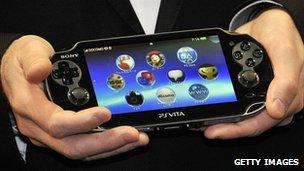Imagination challenges ARM with Mips takeover
- Published

Ramos's Miumiu W1 tablet is one of the few Android devices to be powered by a Mips CPU
UK-based computer chip designer Imagination Technologies is buying US central processing unit (CPU) architect Mips's business operations and some of its patents.
It said the deal would help it compete against ARM, the British firm whose CPU designs power most smartphones.
Imagination had previously been more successful at licensing graphics processing unit (GPU) designs.
Analysts said Imagination's change of strategy could be risky.
Imagination said the $60m (£37.6m) deal was designed to make it an "industry-leading force" in CPU development.
"We think that it strengthens our line-up and offers more choice," Imagination spokesman David Harold told the BBC.
"ARM are obviously very strong in the CPU space and we have been niche.
"But by bringing Mips into our business we think it will become a strong alternative in the CPU market."
British rivals
CPUs are designed to carry out calculations in sequence where the answer to one process provides the information to carry out the next one. They are usually a device's most powerful processor and tend to do most of its computations.
By contrast, GPU processors are typically slower at carrying out each single calculation, but benefit from the ability to carry out several simultaneously. This makes them a better choice for what are termed parallalisable tasks such as drawing graphics on a screen or speech recognition.
Both ARM and Imagination license their designs to others but do not make their own chips.
In some cases the technologies sit side by side in devices - Apple's iPhone 5, for example, features a PowerVR GPU based on Imagination's architecture, and Apple's A6 CPU which is based on ARM's work.
Sony's PlayStation Vita also uses a PowerVR GPU and an ARM-based Cortex design.

The PlayStation Vita has an Imagination-designed GPU and an ARM-based CPU on the same chip
Matters have been complicated by ARM's push into the GPU market - its Mali design powers Samsung's new Google-branded Nexus 10 tablet, for instance.
Hertfordshire-based Imagination now intends to turn the tables on its rival. It notes that Mip's CPU architecture can be used to power devices running Google's Android operating system, even though few manufacturers have so far made use of it.
One analyst said Imagination might find it a hard market to crack.
"There is a definite synergy to be had by being able to offer both parts of the solution," said Chris Green, principal technology analyst at Davies Murphy Group Europe.
"As more manufacturers move towards system-on-a-chip solutions - where all the processors are put onto the same silicon - they are looking for solutions that come from the same designer. It helps with future planning and economies of scale.
"But it could be challenging for Imagination to move out of its niche space. The broader CPU market is high volume and low margin, and many manufacturers are already happy with ARM."
Investec bank's tech analyst James Goodman added that rumours of the acquisition had been circulating for some time, but he had thought the move unlikely.
"Mips has good standing, we understand, in areas such as networking and digital TVs," he said.
"Imagination expects to broaden the strategy towards the mobile segment, whilst at the same time we are seeing ARM aggressively target the networking and DTV segments.
"We therefore believe the competitive pressure has increased significantly, whilst the risk to the strategy is also considerably greater.
"The cash cost is $60m and we assume there will be further exceptional costs in combining the businesses."
- Published30 October 2012
- Published6 August 2012
- Published16 May 2012